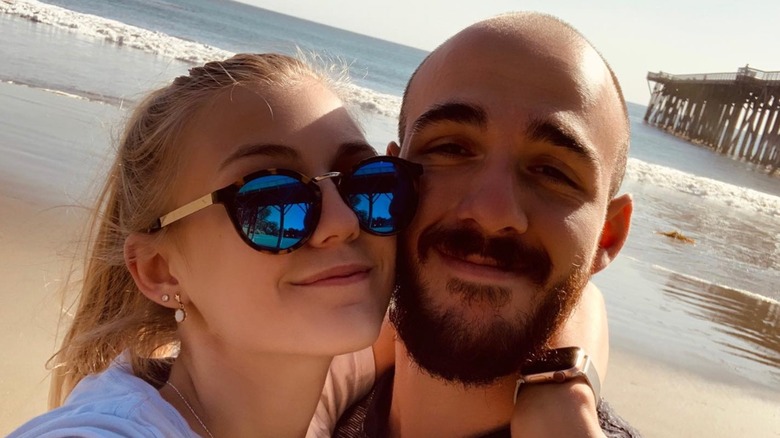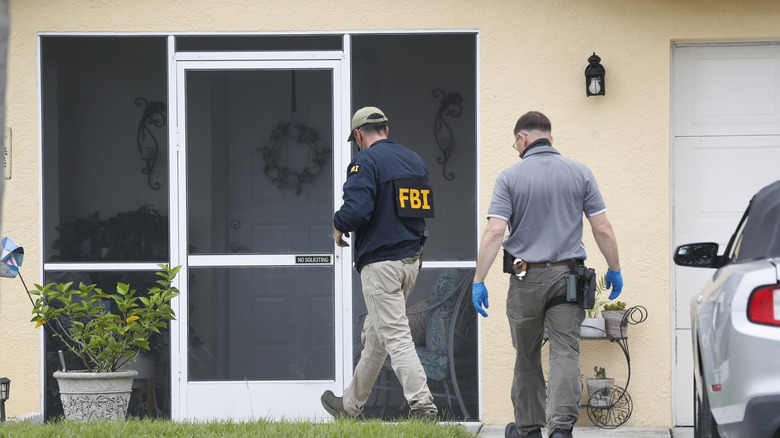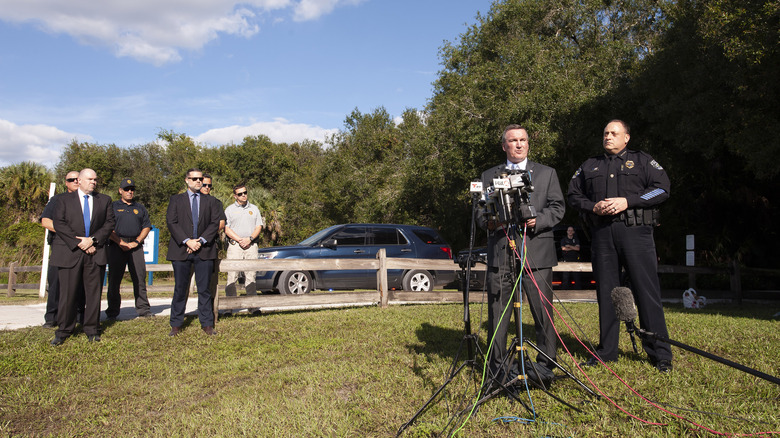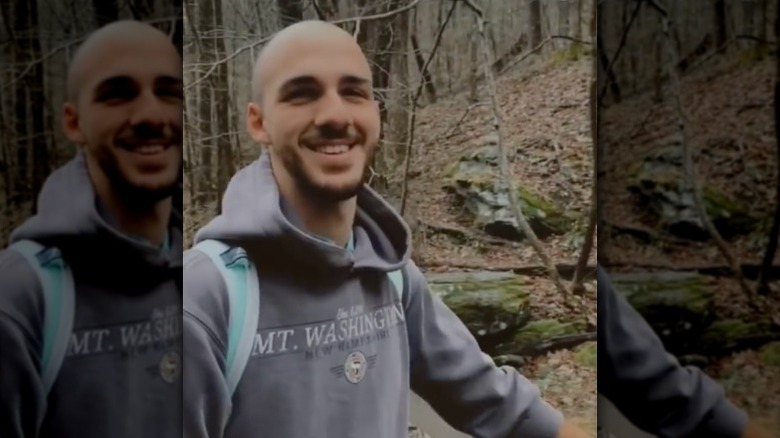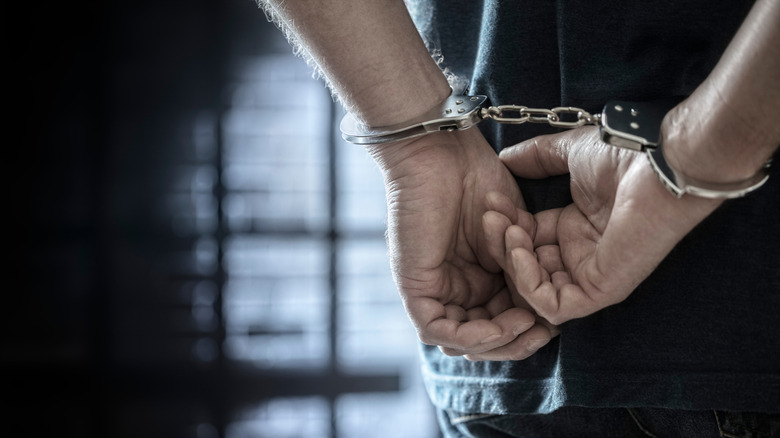What If Brian Laundrie Had Been Captured Alive?
By the time Brian Laundrie's remains were identified on October 21, 2021, the court of public opinion had already decided he had killed his girlfriend, Gabby Petito. It turned out, they weren't wrong. The young adventurers' dreams disintegrated over just two months as they drove west in their 2012 Ford Transit Connect. When Petitio went missing on August 27, the aftermath played out in real-time, making national headlines as police and internet sleuths worked diligently to figure out what happened from the day she was reported missing by her family on September 11 until Laundrie's remains were identified nearly six weeks later.
The 23-year-old's body was discovered in a nature preserve in Southwest Florida. He had died by suicide, and he left a notebook behind. Inside, he confessed to killing his fiancé, Petito, who was 22. Medical examiners in Wyoming, where she was found, concluded that she died from strangulation.
The couple left Florida on July 2, exploring and documenting their travels for their "Van Life Journey" to be shared on their YouTube channel, Nomadic Statik. For a while, they posted photos of the beautiful places they camped on Instagram while Petito worked on creating videos for YouTube. But on September 1, Laundrie unexpectedly showed up at his parent's house in North Port, Florida. When Petito's family couldn't get answers from the Laundries and they couldn't reach their daughter, they reported her missing.
The Laundrie family's refusal to talk to or cooperate with investigators caused many to suspect they know more than they were letting on, even though their silence was at the behest of the family attorney. Still, initially, Petito was a missing adult, and there was no known crime to charge Laundrie with. Much of that would change in the following weeks, and if Laundrie had been captured alive, it's almost certain he would have been charged with the murder of Gabby Petito.
He was indicted on federal fraud charges after Petito's remains were found
On September 15, four days after Gabby Petito was reported missing, police called Brian Laundrie a "person of interest" in the case. Just a day or two before that though, Laundrie told his parents he was leaving to go hiking. On September 17, after he didn't come home for a couple of days, they reported him missing.
While Laundrie was missing in Florida and North Port Police were looking for him in a 25,000-acre park called the Carlton Reserve, federal agents were still searching for Petito nearly 2,400 miles away at Grand Teton National Park in Wyoming. On September 19, Petito's body was found in the GTNP's Spread Creek Dispersed Camping Area.
Instead of immediately issuing an arrest warrant, Laundrie was federally charged on September 22 with "Use of Unauthorized Access Devices" for using Petito's debit card and pin number after he left her in Wyoming. According to The Washington Post, he'd taken withdrawals from two of her bank accounts amounting to more than $1,000. But had he lived, that charge would have been the least of his concerns.
Laundrie likely would have been charged with federal homicide
Considering Brian Laundrie was the last known person to be with Gabby Petito, he was taking money from her accounts as he made his way back home without her, and her death was deemed a murder, he was very likely looking at a homicide charge. That charge would have come from the federal government because Petito's body was found on federal land. However, in federal felony cases, a grand jury has to be convinced that the evidence of the situation warrants an indictment.
According to what a legal expert told Business Insider, the FBI only issued the fraud charge and hadn't yet accused Laundrie of murder because it wanted to talk to him prior to moving forward with any homicide charges. Once he was charged with murder, he would have "absolute right to counsel," whereas with the fraud charge, he would not. With the lesser charges, it would be "easier" for the FBI to interview Laundrie without an attorney present prior to deciding if and how to proceed with the murder indictment.
After the authorities gathered information, they would need to convince a federal grand jury that Laundrie should be charged with either murder in the first degree or murder in the second degree. A first-degree homicide conviction includes the death penalty option. A second-degree conviction has no maximum set sentence time, but if convicted, Laundrie could have spent the rest of his life in prison.
He confessed to what may have qualified for voluntary manslaughter
It's also possible, but probably less likely, that Brian Laundrie could have been charged with voluntary manslaughter. While he confessed to killing Gabby Petito in a notebook found with his remains, he claimed he did it as a mercy killing, saying that she suffered some kind of injury and he "took away her pain." "I ended her life." he wrote (via Wink News). "I thought it was merciful, that it is what she wanted, but I see now all the mistakes I made. I panicked, I was in shock. But from the moment I decided, took away her pain, I knew I couldn't go on without her"
There is no way to know what Laundrie would have told investigators had he lived. If he told the mercy killing story and prosecutors couldn't prove a stronger case, maybe they would have charged him with voluntary manslaughter, which is defined by the U.S. Department of Justice as killing "without malice." If the case went that route, Laundrie would have faced up to 10 years in prison.
Brian Laundrie's fate could have gone in a few different directions
If he had survived and been captured alive, much of Brian Laundrie's fate would have depended on what he told police. While it's more than likely he would have been charged with killing Gabby Petito, it's possible that he could have denied killing her at all. In this case, prosecutors would have needed to decide what to charge him with depending on what they felt they could prove.
Petito's body was in the wilderness for a few weeks before it was found, so it's unclear how much solid evidence there was that Laundrie was the person who strangled the 22-year-old. If he pleaded not guilty, a trial would have been necessary. Or he could have pleaded guilty and not told the mercy killing story, instead taking full responsibility. If that happened, there would be no trial, and a judge would look at the circumstances of the case and determine how long Laundrie's sentence should be.
We'll never know what Laundrie would have told investigators if he'd been captured alive, but he was a person of interest from early on in the case and the only known suspect in Petito's death. Depending on what, if anything, he was convicted of, Laundrie would serve his time in a federal prison, of which there are 122 locations dotting the U.S. There is also a chance he would have walked free if he went to trial and a jury found him not guilty.
